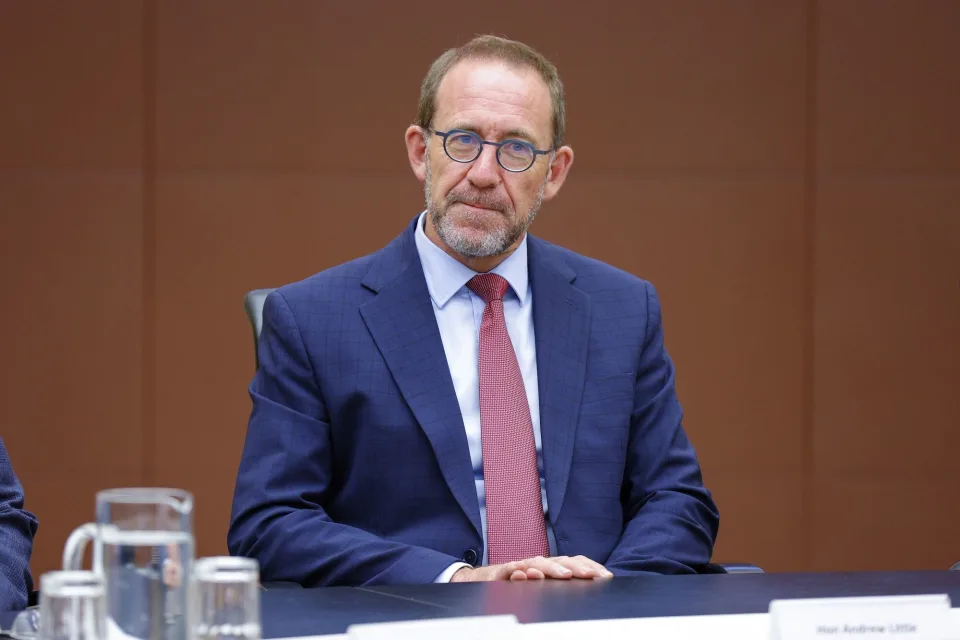For the first time in decades, foreign and defence policy are in the electoral spotlight in New Zealand, as opinion surveys show public concern about the security environment and the major parties wrestle with how to respond to an assertive China.
The first part of the country’s defence review, released last week, said that New Zealand’s military capabilities had fallen behind and that its geographical isolation was no longer a security guarantee.
With a general election on 14 October, there is no clear path on how the country should respond – a quandary that experts say has voters closely considering external issues, uncommon in New Zealand politics since the 1980s.
A survey conducted alongside the defence review found 40 percent of respondents saw China’s rise as one of the greatest threats to New Zealand’s safety and security in the next 10 years.
“Foreign policy, defence, our relationship with the Pacific – all of that will be far more relevant and the public will be more conscious of it compared to other elections, where it’s been pretty much non-existent,” said Josie Pagani, a political commentator and host of the pre-election foreign policy debate.
To be sure, political campaigns have stayed focused on domestic issues such as the rising cost of living, crime and the economy. Sixty-three percent of voters say inflation and the cost of living are a most important issues of the election, a poll by the Ipsos New Zealand Issues Monitor released in June said. By contrast, one percent of voters ranked defence and security as a top priority.
Until recently, the country thought it “was protected by its remoteness,” Defence Minister Andrew Little said in a speech launching the defence review.
But China’s growing presence in the Indo-Pacific and its decision to sign a security pact with the Solomon Islands have brought strategic challenges closer to home. The war in Ukraine has also illustrated the local impact of global geopolitics, as food and fuel prices rise in New Zealand.
A second survey released last week by the country’s national intelligence and security board found increasing levels of concern about defence, security and foreign policy.
Respondents said they saw about a 50% chance other countries would threaten the country’s interests in the Pacific or interfere in its affairs in the next 12 months and a 42 percent chance New Zealand would be in an armed conflict in the next 10 years.
“I think we were perhaps a little surprised on the upside that people actually wanted to engage on this,” said Chris Seed, secretary of Foreign Affairs and Trade, referring to foreign policy and defence issues.
Foreign policy doesn’t usually play in New Zealand elections, said Jason Young, an associate professor of international relations and politics at Victoria University. He said a notable exception was in the 1980s, when Labour’s decision to stop visits by nuclear-armed and nuclear-powered ships effectively ended the country’s military alliance with Washington – and helped it win the election.
Now New Zealand must decide how to approach defence spending, its relationship with the United States and China, and the AUKUS partnership, in which Australia, the United States and Britain are collaborating on nuclear-powered submarines. The country’s current defence budget is about one percent of gross domestic product.
The governing Labour party has suggested spending must increase but has not said by how much.
“New Zealand needs a full public debate on this (defence and security policy) and not an officialdom-driven realignment,” former prime minister and Labour leader Helen Clark posted on social media platform X, formerly known as Twitter, on 04 August. She did not respond to requests for comment.
New Zealand’s involvement in a second tier of AUKUS is also unclear. The defence review said it presented “an opportunity”, but Foreign Minister Nanaia Mahuta has said New Zealand does not want to compromise its anti-nuclear position.
The opposition National party, which polls indicate will win control of the government, hasn’t released its defence policy and said it needs more detail about AUKUS.
National’s foreign affairs spokesman, Gerry Brownlee, has highlighted the importance of ties with China – however contentious they may be.
“Tomorrow, they’ll be hundreds of thousands of New Zealanders who go to work, who have some dependence in their job on our trading relationship with China,” he told the audience at the pre-election Foreign Policy debate. “So that’s something that over time we have to deal with,” he said.
SOURCE: NZ WIRES/PACNEWS













